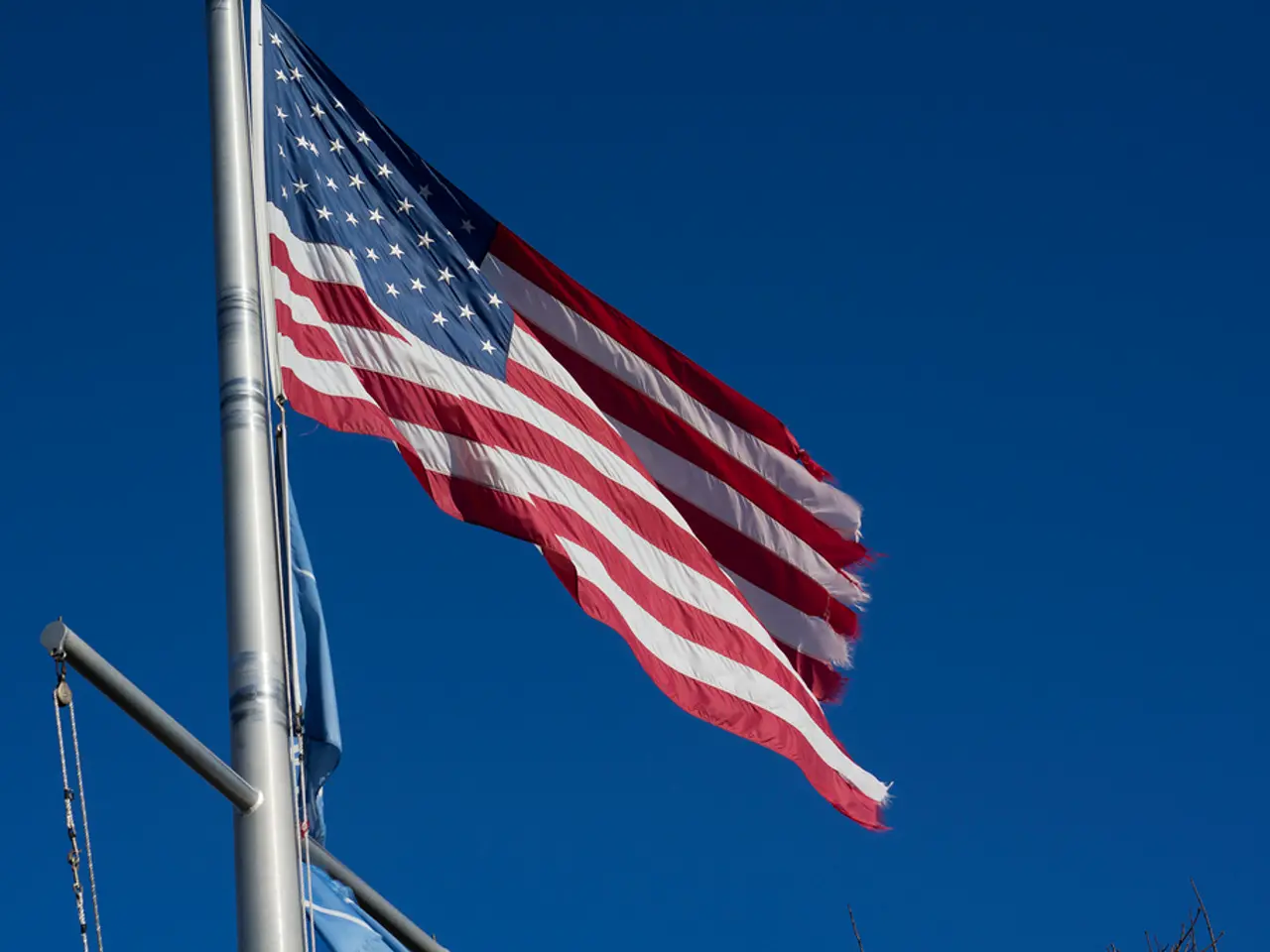B.C. Legislator Alarmed by U.S. Senator's Preposterous Recruitment Proposal
In an unexpected move, Republican Maine state senator Joseph Martin has proposed that Canada’s four western provinces—British Columbia, Alberta, Saskatchewan, and Manitoba—could join the United States as full states if their citizens consented via referendums.
Martin's proposal, presented in an unprompted letter, emphasises that this would not be annexation but “adoption,” welcoming provinces that share American values and traditions as new states. The letter, which was received last week by British Columbia legislator Brennan Day, criticises Canadian governance and highlights dissatisfaction with aspects like bilingual federal documents and the Canadian Charter of Rights and Freedoms, which Martin argues “provides no absolute protection.”
Day, a member of the Opposition B.C. Conservative Party, initially deemed the proposal as "nonsense." However, he later suggested that Martin's letter might be influenced by the rhetoric coming out of Alberta. Day views the proposal as an inappropriate interference in Canadian sovereignty and values, and as an illegitimate overreach given Martin’s role as a state senator.
The proposal does not specify a reason for the approach to entry, nor does it mention any potential impact on international relations, the political landscape of the United States or Canada, or the implications or benefits of the entry for either country. The letter also does not indicate any response or reaction from the governments of the four western provinces.
Despite the criticism, Martin describes the potential entrants as "kindred spirits who were born under a different flag." He believes that the provinces would gain "liberty" by adopting the U.S. Constitution and American governance instead of Canadian political structures and the monarchy. However, Day counters this by suggesting that Sen. Martin should consider the weight of his own party's baggage, as the U.S. Constitution is being torn up by Republicans.
The proposal, while unconventional, has sparked a lively debate in both countries, with critics rejecting the idea and supporters viewing it as a chance for the provinces to leave behind "failing ideologies," "central authority," and "bureaucratic suffocation." The future of this proposal remains uncertain, but it has certainly captured the attention of both nations.
- The media in Toronto and across Canada have been abuzz with the unorthodox proposal by Republican Maine state senator Joseph Martin, suggesting that Canada’s four western provinces could join the United States as full states if their citizens agree via referendums.
- The general news has been filled with discussions on the political implications of Martin's proposal, as it challenges the sovereignty of Canadian governance and draws attention to contentious issues like bilingual federal documents and the Canadian Charter of Rights and Freedoms.
- The debate over Martin's proposal has spilled over into discussions about war-and-conflicts and international relations, as experts ponder the potential impact on the political landscape of both the United States and Canada.
- In the community, reactions have been mixed, with some supporters viewing the proposal as an opportunity toleave behind "failing ideologies," "central authority," and "bureaucratic suffocation," while critics reject it as an unfounded interference in Canadian sovereignty.
- As the proposal gains traction in both nations, news outlets are closely monitoring the responses from the governments of the four western provinces and the U.S. political landscape, eager to see how this unusual political policy will unfold.






